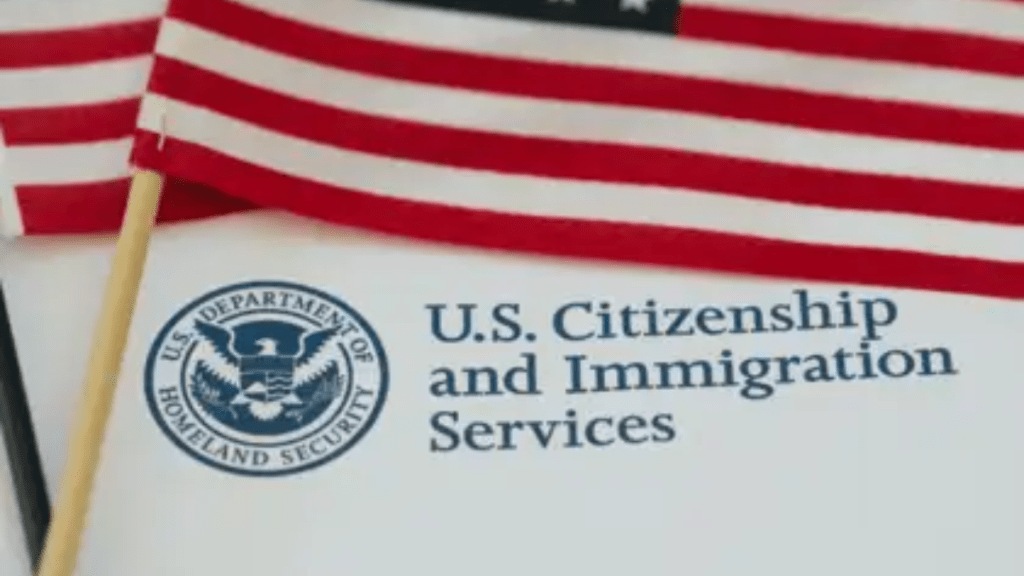Hours after US Citizenship and Immigration Services sounded the alarm on “anti-American” ideologies among those seeking to obtain immigration benefits, including green cards, the government agency has spoken out against potential immigration frauds. The government branch under the Department of Homeland Security pushed another news release dated August 20 (US time), issuing a warning for foreign nationals who falsify information in attempts to gain US citizenship.
“Protecting the integrity of our lawful immigration system to make America safe again is our top priority,” the USCIS wrote in a post on X, which plugged the latest news release titled “USCIS to Enforce Consequences for Aliens Who Falsify Information.”
USCIS revises policy on foreigners making false citizenship claims
Authorities further notified via the social media warning that they had restored their “robust screening and vetting capabilities” so that foreigners with deceitful intent could be detected early on and stopped from trying to come into the country. “Immigration fraud is a crime we take seriously. Aliens who use false information or deceitful practices to unfairly obtain immigration advantages will face serious consequences,” they tweet added.
The USCIS also re-shared an article by the Washington Examiner, quoting the agency’s spokesman Matthew Tragesser, “USCIS is restoring robust screening and vetting processes to detect aliens seeking to defraud or abuse the immigration system, including aliens who make false claims to US citizenship.”
Protecting the integrity of our lawful immigration system to make America safe again is our top priority. We’ve restored our robust screening and vetting capabilities so we can detect aliens with harmful intent and deter them from trying to enter the U.S.
— USCIS (@USCIS) August 20, 2025
Immigration fraud is a… pic.twitter.com/p4tuR7qiDw
As federal authorities ramped up their efforts to deter immigrants posing as citizens, hoping to vote in the US and acquire Social Security, they updated USCIS Policy Manual Volume 8, Part K, Chapter 2. Effective immediately, officials confirmed that the revision would apply to pending requests or even the ones filed on or after the publication date.
The Policy Manual in question determines a false claim to US citizenship. Meanwhile, the clarified guidance highlights, “the decision in Matter of Zhang supersedes all prior DHS policy and guidance that provided a defense to the false claim to U.S. citizenship ground of inadmissibility under the Immigration and Nationality Act (INA) 212(a)(6)(C)(ii) based on an alien’s knowledge or legal capacity.”
Understanding the ‘Matter of Zhang’ referred to in the new USCIS false citizenship claim warning
The Department of Justice’s 2019 issuance on the ‘Matter of Zhang’ refers to an immigration judge previously finding Jun Yun Zhang removal as the respondent was found to have falsely claimed to be a US citizen, but granted his application for cancellation of removal.
The Chinese native and citizen was admitted to America as a lawful permanent in June 1991. He later purchased a Certificate of Naturalization from a person, who at the time, was affiliated with the former Immigration and Naturalization Service (INS) and was subsequently convicted of illegally selling such certificates.
A DHS officer later testified that Zhang had acquired the Form N-550 (which he then used to obtain a US passport, clearly a “benefit”) from the ex-INS agent through unlawful means. Moreover, he did not properly complete the naturalization process, further discrediting the issuance of a certificate for him. The fault here turned out be that the respondent couldn’t pass the English and civic tests, did not receive a Notice of Naturalization Oath Ceremony (Form N-445) and did not even participate in the required interview process.
Zhang, however, appealed the decision, noting that there should be proof to show that his false claim to citizenship was “willful” or “knowing,” contending that his action were in good faith as he did not obtained the naturalization certificate for any “benefit” under the given act. And so, the big question before authorities was “whether an alien’s false claim to United States citizenship must be made knowingly to render him or her removable.”
Nonetheless, the final verdict saw his appeal get dismissed, while the respondent was deemed removable from the US under section 237(a)(3)(D) of the e Immigration and Nationality Act.
